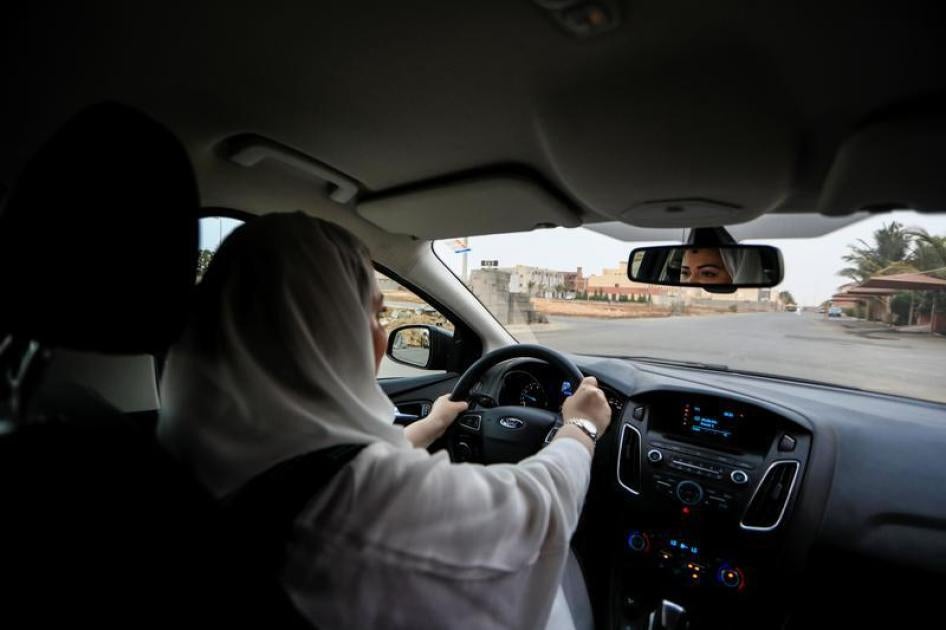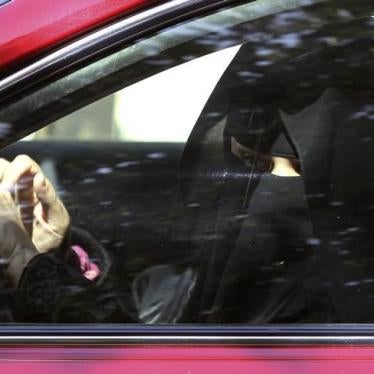Saudi Arabia lifted its decades-long ban on women driving this month, but the moment was tainted by the Saudi government’s retaliation against those who have long led the fight for women’s right to drive. The auto industry had publicly cheered the change, as did many who saw this as a step toward equal rights for women in the kingdom. But now the industry has gone silent.
The government first announced it was lifting the driving ban last September. Within days Volkswagen, the BMW subsidiary Mini Cooper, Nissan, Jaguar, the GM subsidiary Chevrolet, and Ford publicly praised the move and aligned themselves with women drivers. Renault reportedly promised free cars to seven women once they get their driver’s licenses. Their motivations were obvious: Supporting women drivers isn’t just good ethics. It’s good business, since it promises a huge expansion of Saudi Arabia’s car market.
Yet the mere act of expressing public support for women drivers was denied to the women who fought for that right. The week the government announced it would lift the ban, officials contacted a number of the activists and warned them not to publicly comment on the decision.
Then on May 15, a little over a month before the June 24 date for women to start to drive, Saudi authorities began arresting women’s rights activists. Local media outlets called the activists traitors and criminals. At least 14 activists have been provisionally arrested since May and nine remain behind bars.
For almost two years, in 2013 and 2014, Aziza al-Yousef, Eman al-Nafjan, and Loujain al-Hathloul were at the forefront of a viral global campaign, October 26th Driving, that asked women post videos and pictures of themselves driving on social media. They placed themselves at grave personal risk in their efforts to petition their government to lift the ban and make it a priority on the political reform agenda. Al-Yousef, al-Nafjan, and al-Hathloul are among those still in prison.
Al-Hathloul tried to livestream her drive into Saudi Arabia from the UAE in 2014. At the time, she was arrested at the border and imprisoned for 73 days. Now she is back in jail. Even some of the seasoned activists who participated in the first protest of the ban in 1990, Aisha al-Manae, Hessa al-Sheikh and Madeha al-Ajroush, were arrested during this latest crackdown and later released.
So far, the car companies have been silent about the arrests, in stark contrast to their earlier support for women’s right to drive. It is also in stark contrast with some of the companies’ actions in the US when they felt government policy was contrary to their values. When the Trump administration sought to institute a travel ban from several Muslim-majority countries, Ford and GM were quick to denounce it. In recent days, the Business Roundtable, the influential trade organization that includes Ford and GM as members, has condemned the Trump administration’s cruel child separation policy
Car companies can and do speak up for rights when they want to. That is why their silence now is so puzzling. These activists courageously fought for the rights of millions of women in Saudi Arabia, and in doing so, created a lucrative new market for the auto industry.
PriceWaterhouseCoopers estimated that car sales in Saudi Arabia will grow by 9% annually until 2025. Car leasing will grow by 4% annually during that period. By 2020, about 20% of women in the country will be driving. The market could be worth almost 30 billion Saudi Riyals (about $8 billion) by 2020.
Those figures don’t include all the other businesses that will benefit—the insurance companies, mechanics, and others needed to keep more drivers on the roads. Clearly women drivers are great for business.
The government initially received praise for its reformist stance, but that has been tainted by its subsequent crackdown. If the government gets its way, the companies will clearly profit from the women’s efforts while those market-making activists will pay with their freedom.
Demands for gender equality and fairness by Saudi feminists should gain traction from acts of solidarity at the time of need and not when the government signals its approval. This is a prime time for companies to show solidarity with Saudi feminists, now that the Saudi economy is a determinant of success for the country’s national strategic plan, Vision 2030.
The next turn of the wheel is that multinational businesses can facilitate a positive environment for women change makers. The companies that have so much to gain in Saudi Arabia and that benefited from the courage of women’s rights activists need to tell the government to put the brakes on arresting women’s rights activists, free those who were jailed, and drop the charges against them.









